Insights & Inspiration Discover Our Blogs
Latest Blogs

DST
May 26, 2025
Top 7 Questions to Ask Before Investing in a DST
Investing Through a DST? Ask These 7 Questions to Uncover Hidden Risks Before You Sign.
Read More
Exchange Tips
Qualifying for a 1031 Exchange: Common Mistakes to Avoid
- All Blogs
- DST
- QOF
- Exchange Tips
- Real Estate Investment
- 721

QOF
Commercial Real Estate Investing: Expert Tips for Buying Commercial Properties
Thinking about investing in commercial real estate properties but unsure where t...
Read More
How Does 721 Exchange Work? Everything You Need to Know
Selling an investment property often comes with a big tax bill. But what if you ...
Read More
721
721 Exchange Rules: What Every Real Estate Investor Should Know
What if you could exchange your real estate for ownership in a professionally ma...
Read More
721
721 Exchange Pros and Cons: Is It the Right Choice for You?
Selling an investment property can mean a hefty tax bill. But what if there was ...
Read More
721
721 Exchange vs 1031 Exchange: Which One is Right for You
If you’re looking to defer taxes on your real estate investment, you’ve probably...
Read More
721
What Is a 721 Exchange? Benefits, Risks, and Key Considerations
For many real estate investors, the 1031 exchange has been the go-to strategy fo...
Read More
Real Estate Investment
10 Real Estate Investment Strategies to Maximize Your Returns
Real estate goes beyond buying and selling—it’s about implementing strategies ta...
Read More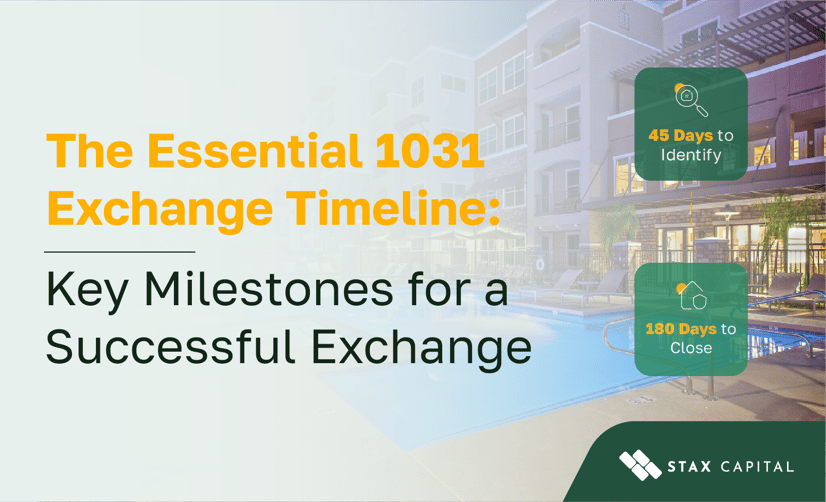
DST
The Essential 1031 Exchange Timeline: Key Milestones for a Successful Exchange
Timing isn’t just important—it’s everything in a 1031 exchange.
Read More
Exchange Tips
What are the Tax Advantages of Real Estate Investing
Looking to save on taxes while building wealth?
Read More
Exchange Tips
Top 5 Exit Strategies for Real Estate Investors to Maximizing Profits
Real estate investing is all about making the right moves at the right time—and ...
Read More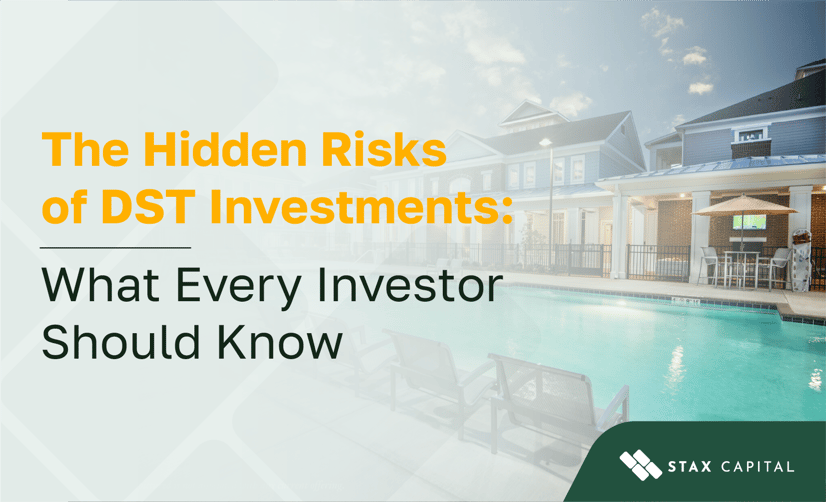
DST
The Hidden Risks of DST Investments: What Every Investor Should Know
Thinking about investing in a Delaware Statutory Trust (DST)? The idea of passiv...
Read More
Exchange Tips
Residential vs. Commercial Real Estate Investing: Which Is Right for You in 2025?
Residential or commercial? It’s the classic debate for aspiring real estate inve...
Read More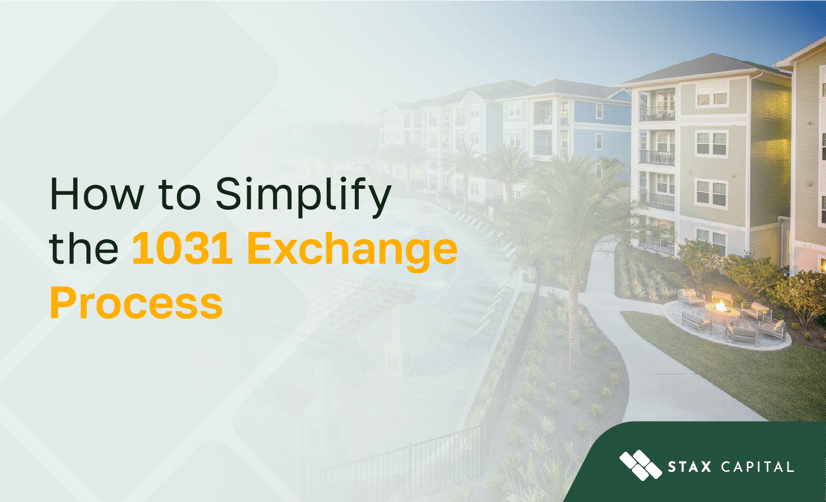
Exchange Tips
How to Simplify the 1031 Exchange Process
If you’re thinking about reinvesting in real estate, a 1031 exchange can be a fa...
Read More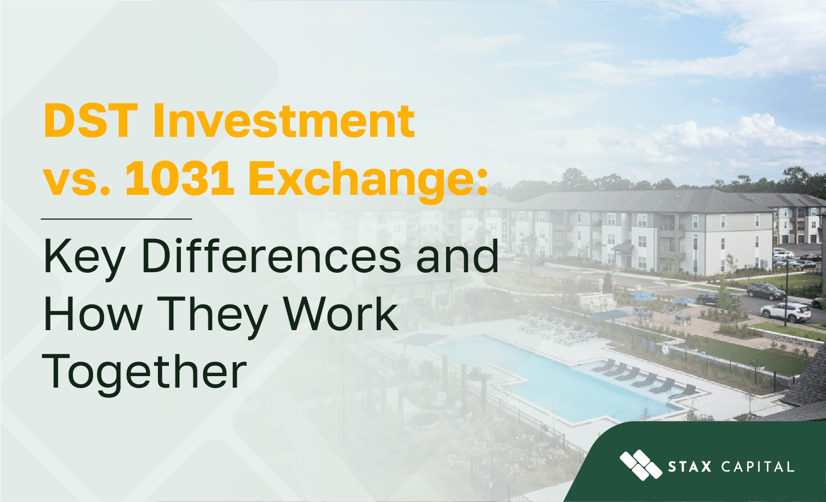
DST
DST Exchange vs. 1031 Exchange: Key Differences and How They Work Together
Confused about whether to choose a Traditional or a DST 1031 exchange vs. a DST ...
Read More
Exchange Tips
Capital Gains and Depreciation Recapture: What Every Seller Should Know
Selling a property can feel like a financial win, but are you prepared for the t...
Read More
Exchange Tips
Top Benefits of Passive Real Estate Ownership
Imagine growing your wealth without dealing with daily property management. Pass...
Read More
Exchange Tips
How to Become a Passive Real Estate Owner Through DSTs
Are you interested in real estate but don’t want the hassle of managing properti...
Read More
QOF
How to Defer and Eliminate Capital Gains Through QOZ Investments
Are taxes eating into your investment profits? What if you could delay or even a...
Read More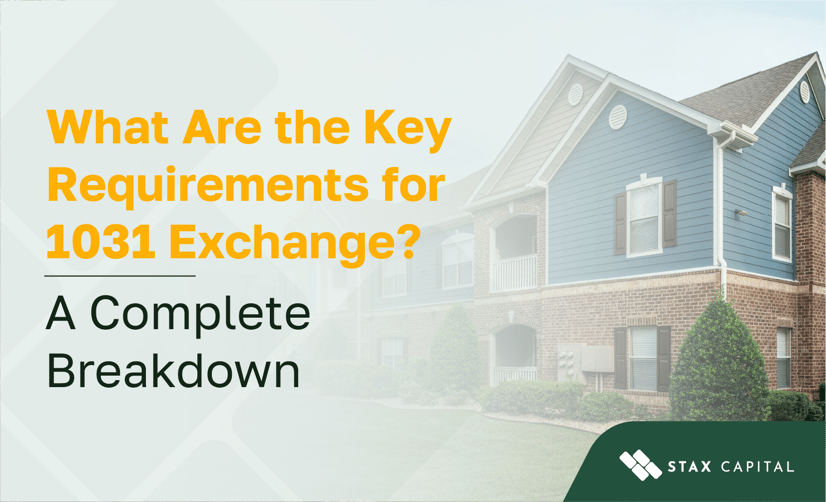
Exchange Tips
What Are the Key Requirements for 1031 Exchange? A Complete Breakdown
Are you considering a 1031 exchange but unsure where to start?
Read More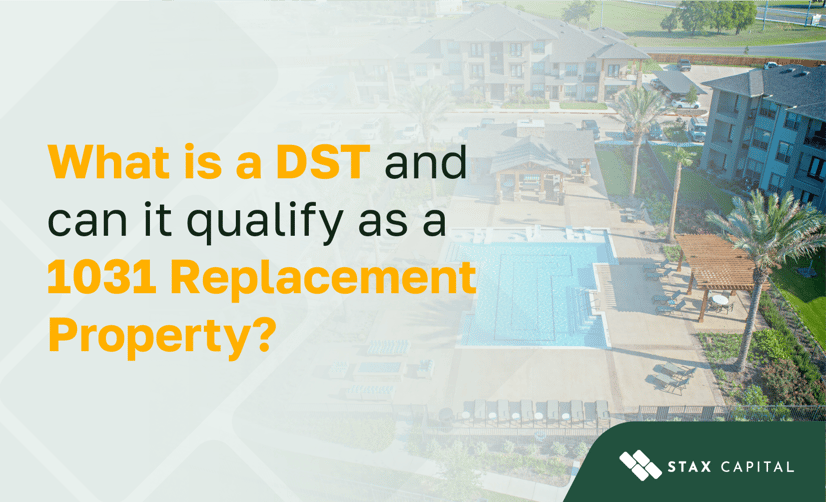
DST
What is a DST and can it qualify as a 1031 replacement property?
Andrew Carnaby's statement that 90% of millionaires build their wealth from real...
Read More
Exchange Tips
What to Know About the 1031 Exchange Identification Rules
Real estate investing can be one of the best ways to grow your wealth. Real esta...
Read More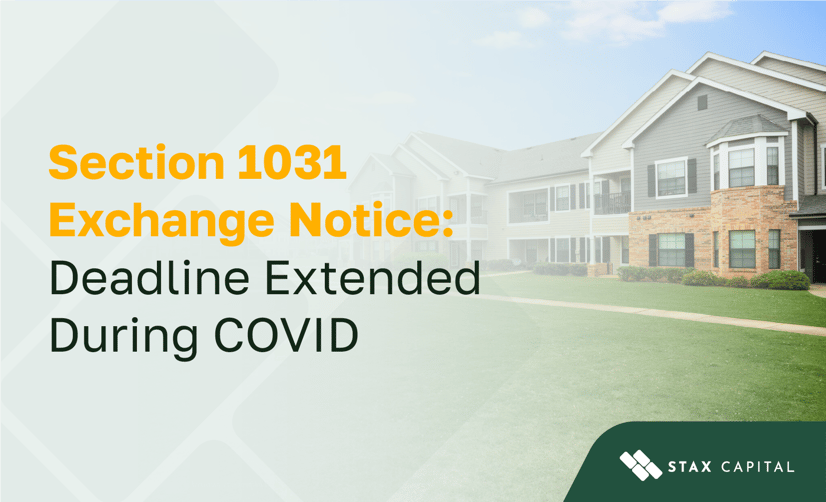
Exchange Tips
Section 1031 Exchange Notice: Deadline Extended During COVID
Section 1031 Exchange Notice: Deadline Extended During COVID-19 The IRS announce...
Read More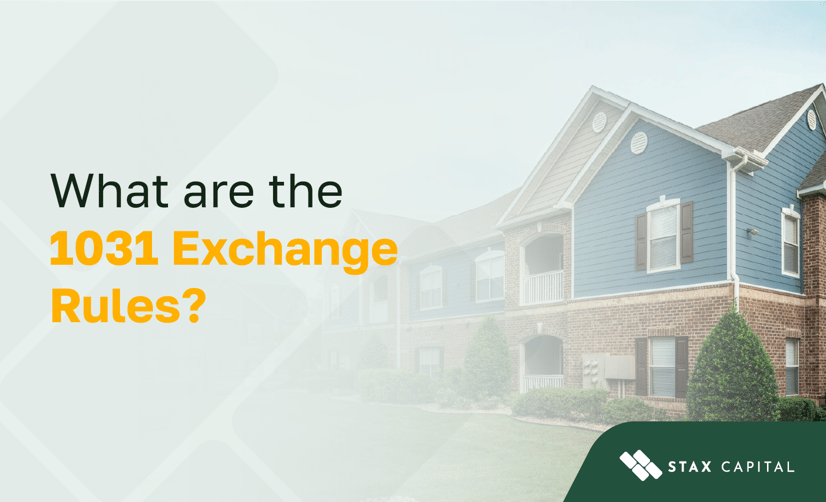
Exchange Tips
What are the 1031 Exchange rules?
Investing in real estate is one of the best ways to diversify your portfolio. Th...
Read More
Opportunity Zones
What Are Opportunity Zones and How Do They Work?
Did you know that more than 52 million Americans live in distressed communities?...
Read More
Exchange Tips
1031 DST Exchanges | All the Steps You Should Follow
In life, success can come in different ways. One of the biggest successes a pers...
Read More
DST
Diversifying investment portfolio through real estate investment
The main goal of investing is to earn returns. No investor really looks forward ...
Read More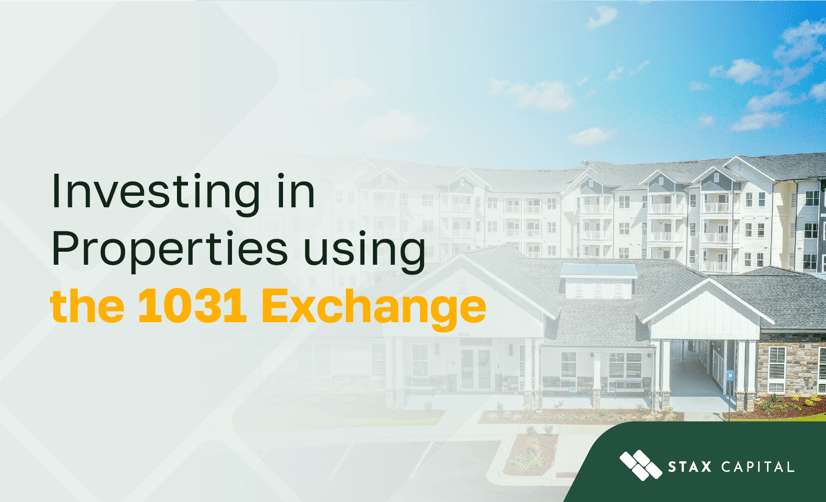
DST
Investing in properties using the 1031 Exchange
The 1031 exchange is a term that comes up often in the real estate world of inve...
Read More
DST
Potential Benefits of Delaware Statutory Trusts for Investors
As an investor looking to diversify into real estate or expand your investments ...
Read More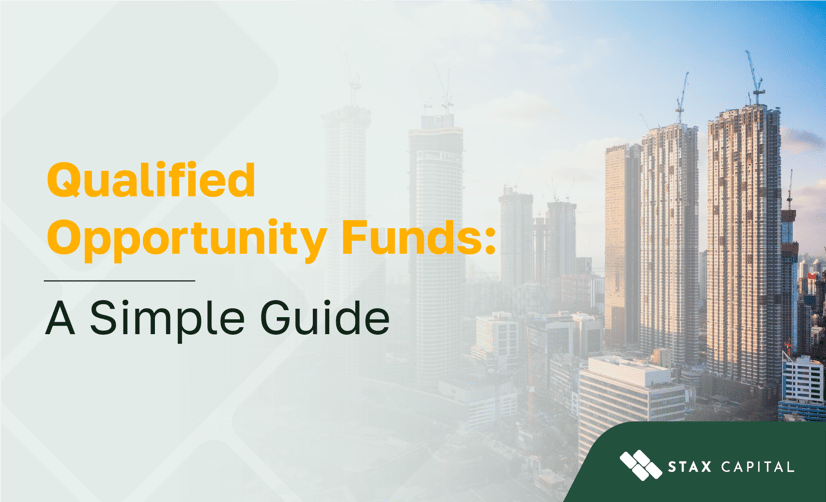
QOF
Qualified Opportunity Funds: A simple guide
An alternative option that can be explored by real estate investors looking to d...
Read More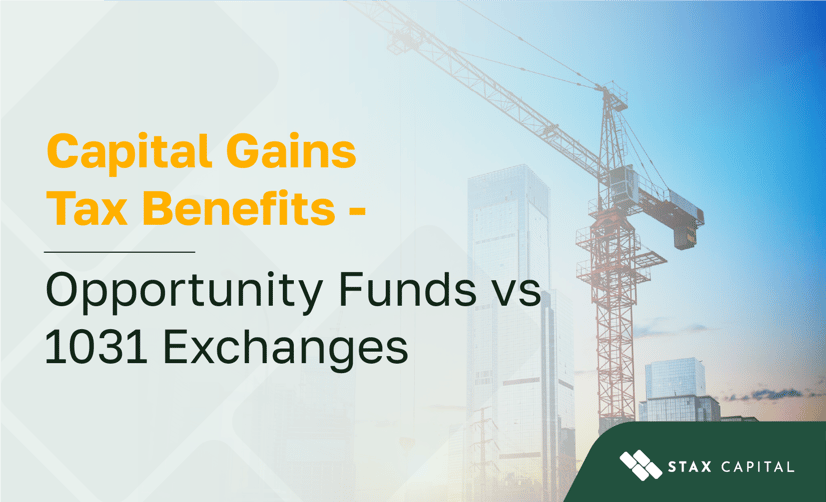
QOF
Capital Gains Tax Benefits - Opportunity Funds vs 1031 Exchanges
Capital gains in the United States are subject to tax when realized. As a real e...
Read More
DST
Real Estate Investment Trusts vs Delaware Statutory Trust
There are various ways to invest and take advantage of possible benefits in the ...
Read More
Real Estate Investment
Direct Participation Programs - What you need to know
If you are searching for alternative channels for real estate investing, Direct ...
Read More
Real Estate Investment
5 Things to Consider When Investing in Real Estate
Investing in real estate can be a rewarding venture, yet it may be complex and t...
Read More
DST
Who is a 1031 Qualified Intermediary and How to Choose One
Searching for the right investment property isn’t the only challenging task for ...
Read More
DST
7 Misconceptions About Investing in Real Estate
There is no doubt that investing in real estate can be complex, but there are ma...
Read More
DST
Alternative Investments for Real Estate Investors
Alternative investments are often used as a means for portfolio diversification....
Read More
DST
Frequently Asked Questions: 1031 Exchanges
Real estate investors often have questions about the 1031 exchange process and h...
Read More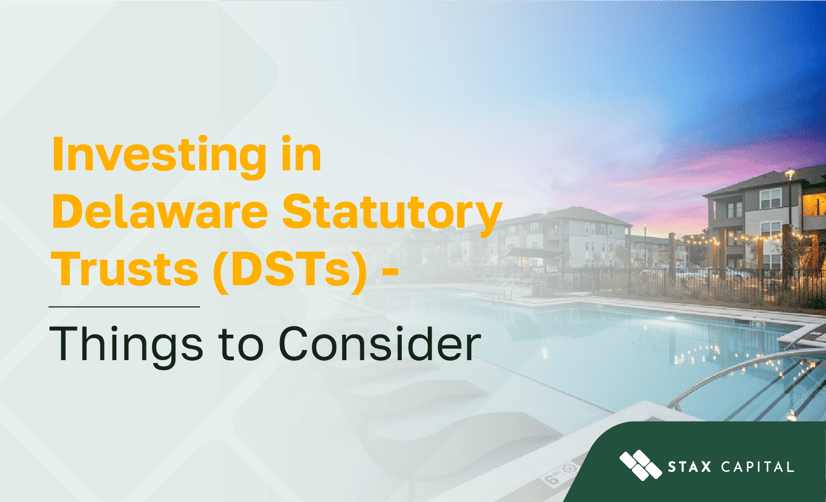
DST
Investing in Delaware Statutory Trusts (DSTs) - Things to Consider
Delaware Statutory Trusts (DSTs) are a popular real estate investment vehicle, o...
Read More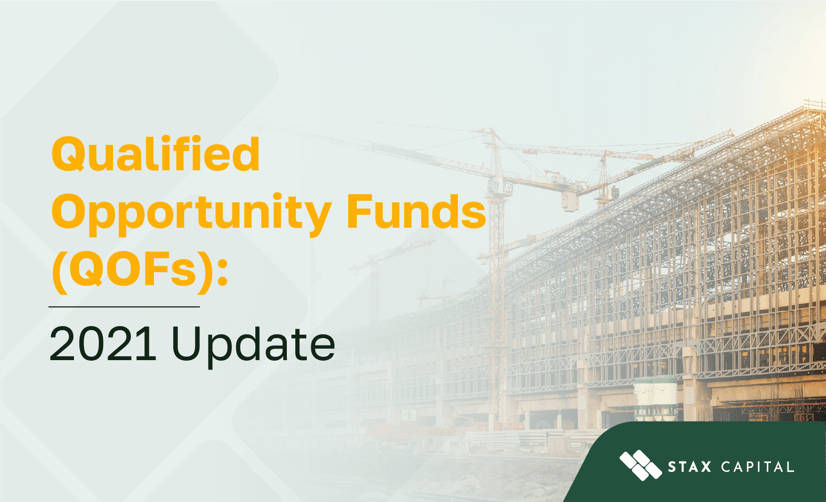
QOF
Qualified Opportunity Funds (QOFs): 2021 Update
One year after a global lockdown triggered by the COVID-19 outbreak, the United ...
Read More
DST
Passive real estate investments – What to Know
Passive real estate investments may be an attention-grabber for investors who be...
Read More
DST
Real Estate Investing
Firm up your portfolio Stax Capital offers Direct Participation Programs includi...
Read More
DST
Top 7 Questions to Ask Before Investing in a DST
Investing Through a DST? Ask These 7 Questions to Uncover Hidden Risks Before Yo...
Read More
Exchange Tips
Qualifying for a 1031 Exchange: Common Mistakes to Avoid
Navigating a 1031 exchange? Avoid these common mistakes to keep your tax deferra...
Read More
QOZ
Unlocking Qualified Opportunity Zone Tax Benefits: What Investors Should Know
Did you know you may be missing out on potential tax advantages available throug...
Read More
QOZ
Interest Rates & Real Estate Investing: Here's What You Need to Know
Think interest rates don’t matter? Think again. A small change in prevailing int...
Read More
QOF
Top Benefits of a 1031 Exchange: How to Maximize Your Real Estate Returns
What if you could upgrade your investment property and avoid paying taxes on the...
Read More

